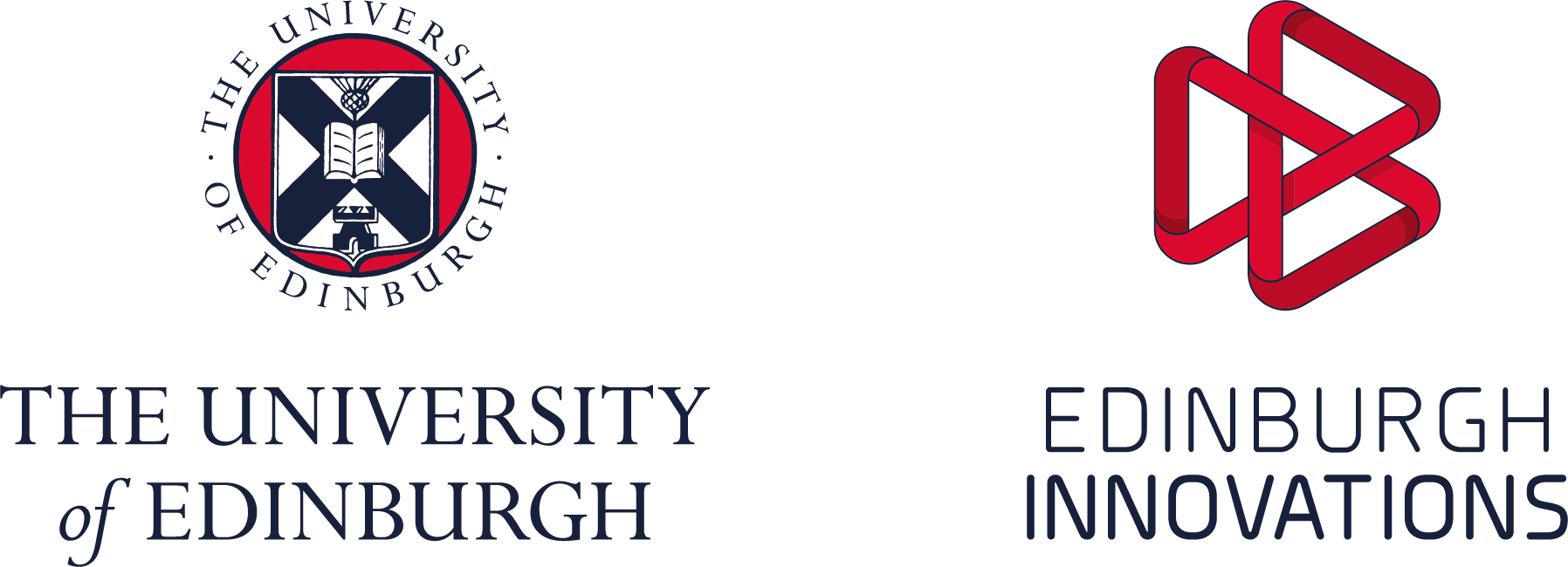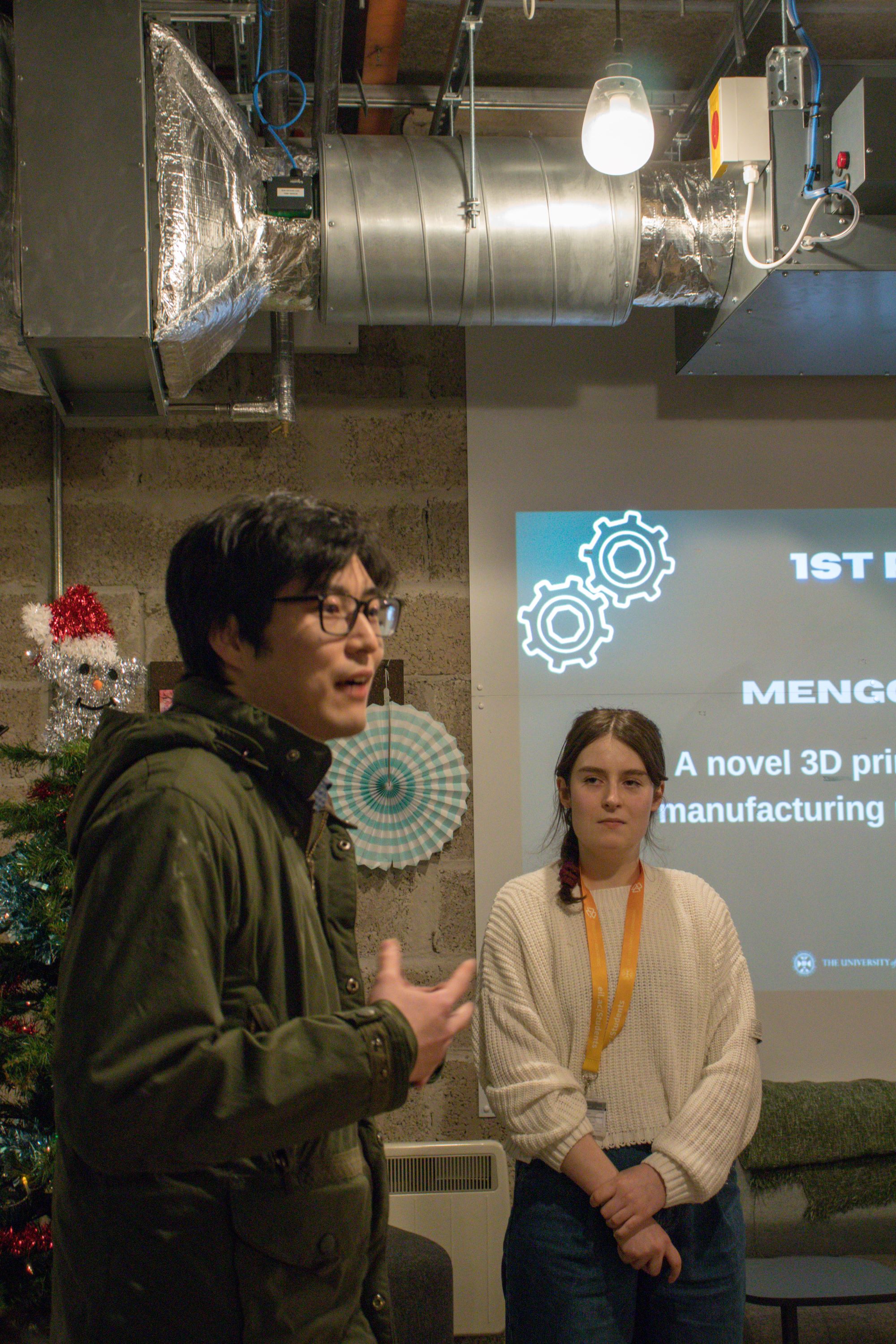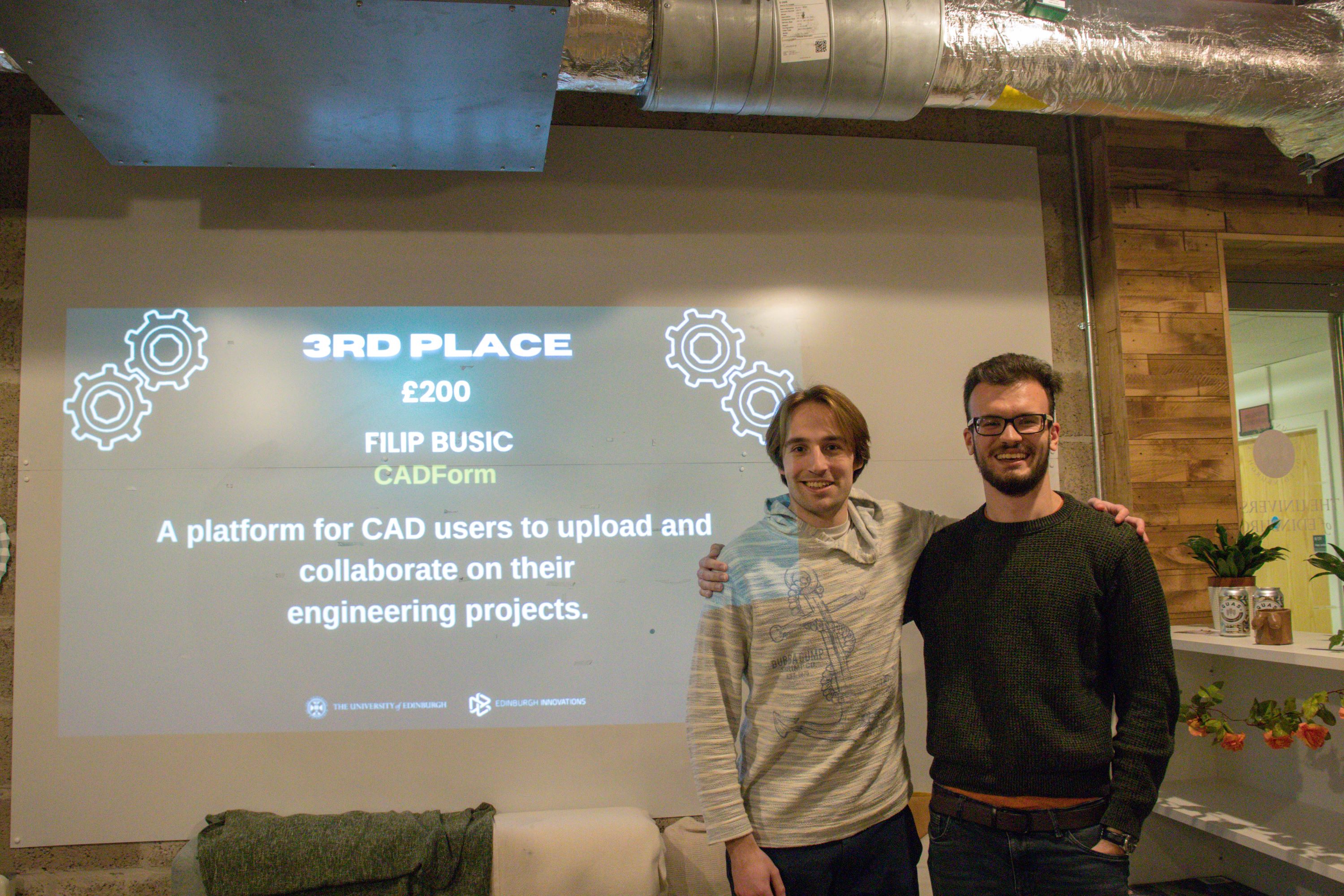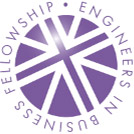Engineering Business Ideas – 2024
Back to Competitions | The Engineering Business Ideas competition run by Edinburgh Innovations offers students and recent graduates from the University of Edinburgh the opportunity to win a share of £1,000 to help make their engineering business ideas a startup reality. |


First place: Mengguang Ye
Mengguang has designed a ground-breaking 3D printing technique that overcomes previous limitations. 3D printing has revolutionised microfluidic device fabrication, offering more flexibility than traditional methods like soft lithography, which is costly, time-consuming, and requires designated facilities. However, 3D printing faces challenges with device transparency, resolution, and biocompatibility – which are all critical for high-quality optical analysis, intricate channel structures, and medical applications.
Mengguang’s invention enhances device transparency for high quality optical analysis, achieves high resolution for micron-scale structures, and ensures biocompatibility for diverse biomedical applications. Mengguang is currently in the patent application process and market research stage and, due to this ongoing work, specific details of the method remain confidential. This innovation marks a significant leap in microfluidic device manufacturing, promising to greatly enhance efficiency and capability in scientific and medical fields.
Student:
- Mengguang Ye – PhD BioEngineering and Biomedical Engineering
Prize awarded: £500

Second place: CriticiseAI
The team behind CriticiseAI have created a tool that supports teachers in their work. More than 40,000 UK teachers quit the profession in the previous year — the highest since 2010 – with many citing the overwhelming workload, particularly in marking. UK teachers are spending more than 11 hours a week on marking and assessments. This excessive workload leads to diminished teaching quality, depriving students of the personalised attention they need, especially in disadvantaged schools.
CriticiseAI addresses this critical issue with an AI-powered tool that dramatically reduces the time teachers spend on essay marking. For instance, while it takes a lecturer about an hour to mark a 5,000-word essay, CriticiseAI’s tool can provide tailored feedback in just under a minute. CriticiseAI is unique in using knowledge-bases to provide tailored feedback at UK university standards
Students:
- Jonathan Reid – BEng, Mechanical Engineering
- Liam Mason – Business Management
- Matthew Neil – Ethical Hacking
Prize awarded: £300

Third place: CADForm
CADForm is designed to be a platform users can upload their CAD files to and use it to collaborate on engineering projects. Geared towards an intuitive user experience while providing robust version control, it has a built-in 3D viewer that allows users to preview parts and assemblies without downloading them. The team are not looking to replace CAD software itself however, with users continuing to use existing CAD software and using CADForm to store files created in these. In essence, it would be akin to GitHub as used in software engineering but for mechanical engineers.
Cloud storage and online collaboration is commonplace across industries, from platforms like OneDrive and GoogleDrive to solutions such as GitHub. However, the mechanical engineering sector has been slow to adapt, with most industry players and student teams using legacy solutions. Existing cloud storage solutions for CAD are either too computationally expensive for most laptops, costly, or lack essential features. The team believe mechanical engineers deserve an intuitive and robust platform for CAD, and are looking to build CADForm to provide it.
Students:
- Filip Busic – MEng, Electrical and Mechanical Engineering
- Sandor Felber – MEng, Electrical and Mechanical Engineering
Prize awarded: £200
Positive feedback
It has been fantastic to offer the Engineering Business Ideas competition again. In recent years, some of the most exciting, high growth and impactful startups from the University of Edinburgh have been led by engineers, building great engineering innovations and have started by winning one of our business ideas competitions. With climate change the most pressing issue of our time there is a greater need than ever for clever engineering solutions. This funding provides crucial stimulus and encouragement for engineers to take their first entrepreneurial steps and build the impactful businesses of the future. The importance of this competition was reflected in the high-quality applications received and we have high hopes for the future of many of the entrants.
Ross McLennan
Enterprise Executive
Edinburgh Innovations
